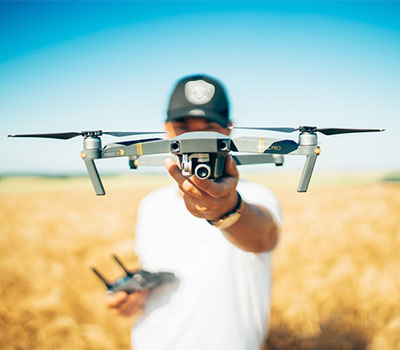Sensors and sensibility – precision farming
As over 80% of Australian farmers are now using GPS on their tractors, Alan Bullion from IHS Markit Agribusiness Intelligence discusses precision farming.
When human society evolved from hunting and gathering to farming, this was one of the most important events to have occurred in history. As farming emerged as a new industry, it encouraged modern technological innovations including more diverse ranges of machinery and various chemical improvements including artificial fertiliser. The plough, for example, was developed to increase the chances of success in the face of disease, changeable weather and pestilence. Similarly, man-made fertilisers were designed to ensure an immediate and consistent supply of precise nutrients to soil.
 But now the world is facing new challenges. The global population is set to reach nearly 10 billion by 2050 according to the UN, and as such, the global industry is increasingly looking to technology to ensure future food production is more efficient, environmentally friendly and affordable. Digitalisation has started to disrupt the sector and precision farming is beginning to play a much larger role. With new diagnostics and sensor technologies promising to improve decision-making, ensure more accurate use of water, fertiliser, veterinary medicines and crop protection products, digitisation brings with it a host of new opportunities.
But now the world is facing new challenges. The global population is set to reach nearly 10 billion by 2050 according to the UN, and as such, the global industry is increasingly looking to technology to ensure future food production is more efficient, environmentally friendly and affordable. Digitalisation has started to disrupt the sector and precision farming is beginning to play a much larger role. With new diagnostics and sensor technologies promising to improve decision-making, ensure more accurate use of water, fertiliser, veterinary medicines and crop protection products, digitisation brings with it a host of new opportunities.
Unlike past agricultural revolutions, which have focused on intensification and standardisation, precision farming provides a new set of tools. It is not about drastically increasing yields but tailoring the cultivation of each square foot: adopting a ‘per plant’ ‘per animal’ approach. As a result, farmers will see enhanced crop quality and animal welfare, improved yields and better care for the environment.
Improving production through precision farming
The industry has always been data-rich but information-poor, and so much of the thrust of new technologies is about gathering data and leveraging this information to improve production. Companies are now working with farmers to enable them to use data to better plan seeding, management and harvesting. Sensors, satellite, GPS and automation can all work together with the farmer to improve overall operations.
GPS technology has been central to the adoption of precision agriculture; allowing farmers to receive real-time information about when and where to fertilise, irrigate or plant. In addition, farmers can determine the exact location of the tractor or machinery in the field and reduce the amount of accidental over/under-spraying. Consequently, this leads to less waste and a lower impact on the environment.
In addition, remote monitoring is now driving change by allowing farmers to monitor their crops using sensors connected to the internet, either via physical lines, low power radio networks or mobile LTE networks. Research has highlighted the importance of this technology – it is estimated that farmers make more than 40 key decisions for any single crop, and so detailed information on soil acidity, water retention and nutrient levels are all important to the success of the farmer. Farmers can use sensors to map soil types, improve crop yield and enable variable-rate fertiliser application over the lifespan of the crop.
Fortunately, the impact of consumer technology like smartphones and tablets along with the promise of improved broadband in rural areas means there will be more ‘connected’ information than ever before for farmers.
Already 80% of Australian farmers are using GPS on their tractors, with the likes of the US, Brazil and Argentina not far behind. To remain globally competitive, UK farmers will need to increase their use of technology and earlier adopters will adapt to market changes with greater agility.
The agriculture industry is undergoing significant change through revolutionary digital technologies and there has been a surge of M&A activity as large companies look to future proof themselves by aligning with technology pioneers. It is still in the early phases, but this innovation presents exciting new opportunities for not only food producers but technology providers in associated markets.
Digital agriculture is already demonstrating strong potential in tackling the challenges of global food production and providing lessons in managing complicated processes at a scale that the technology industry can learn from.
Dr Alan Bullion is the special reports and projects director at IHS Markit’s Agribusiness Intelligence.
Photo: by David Henrichs on Unsplash - Farmers are using drones to spray fertiliser
- Log in to post comments

